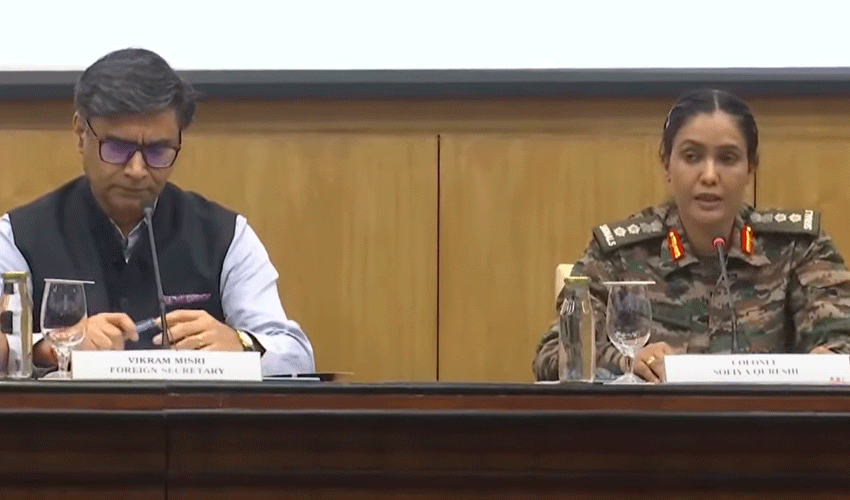On Saturday, the Indian Army officially acknowledged sustaining significant losses following a series of missile strikes by Pakistan on multiple Indian military installations and airbases.
“India doesn’t want war… unless Pakistan wants it too,” says Colonel Sofia Qureshi — right after India violated international borders, dropped bombs inside Pakistan, and triggered a full-blown escalation.
Now that Pakistan has responded in kind, suddenly India’s tone is all… pic.twitter.com/I0LTw0HyfU
— Jahanzeb Khan PTI UK (@JKhanClassified) May 10, 2025
In a press briefing held in New Delhi, an Indian Army spokesperson confirmed that Pakistan had launched high-speed missile attacks on key airbases in Pathankot, Udhampur, Bhuj, and Adampur. The strikes inflicted “considerable damage” to infrastructure and equipment and resulted in both “human and material losses.”
Read more: G7 urges India-Pakistan dialogue, US offers help on ‘constructive talks’
“This was an unprecedented, coordinated offensive. Pakistan targeted 26 of our military installations, including frontline airbases,” the spokesperson stated. While confirming the extent of the damage, he emphasized that India had taken serious note of the aggression but was not looking to escalate the conflict.
In a rare admission, India confirmed the death of a senior administrative officer, Raj Kumar Thapa, who was killed in a missile strike in the Rajouri sector of Indian-administered Kashmir. Though the total number of casualties was not disclosed, officials described the impact as “severe,” with full damage assessments still underway. Military analysts noted that such a candid acknowledgment from the Indian Army is unusual and signals the significant scale of Pakistan’s retaliatory operation.
Read more: Missiles, Drones, and Cyber Warfare: Pakistan Responds to Indian Aggression
Colonel Sofia Qureshi, who represented the Indian Army at the briefing, reiterated India’s preference for de-escalation. “India is not seeking to prolong this conflict. Should Pakistan also choose to de-escalate, we are ready to reciprocate,” she said.
While Pakistan has yet to issue an official statement, military sources in Islamabad described the strikes as a “calibrated and proportionate response” to Indian aggression.
Regional experts interpret India’s acknowledgment as a strategic move—both to attract international support and to signal openness to de-escalation. The situation, they argue, marks a pivotal moment in the ongoing crisis between the two nuclear-armed neighbors.
Though there is no formal confirmation of backchannel diplomacy, heightened diplomatic activity in both New Delhi and Islamabad suggests that international actors may be engaging behind the scenes to prevent further escalation.













